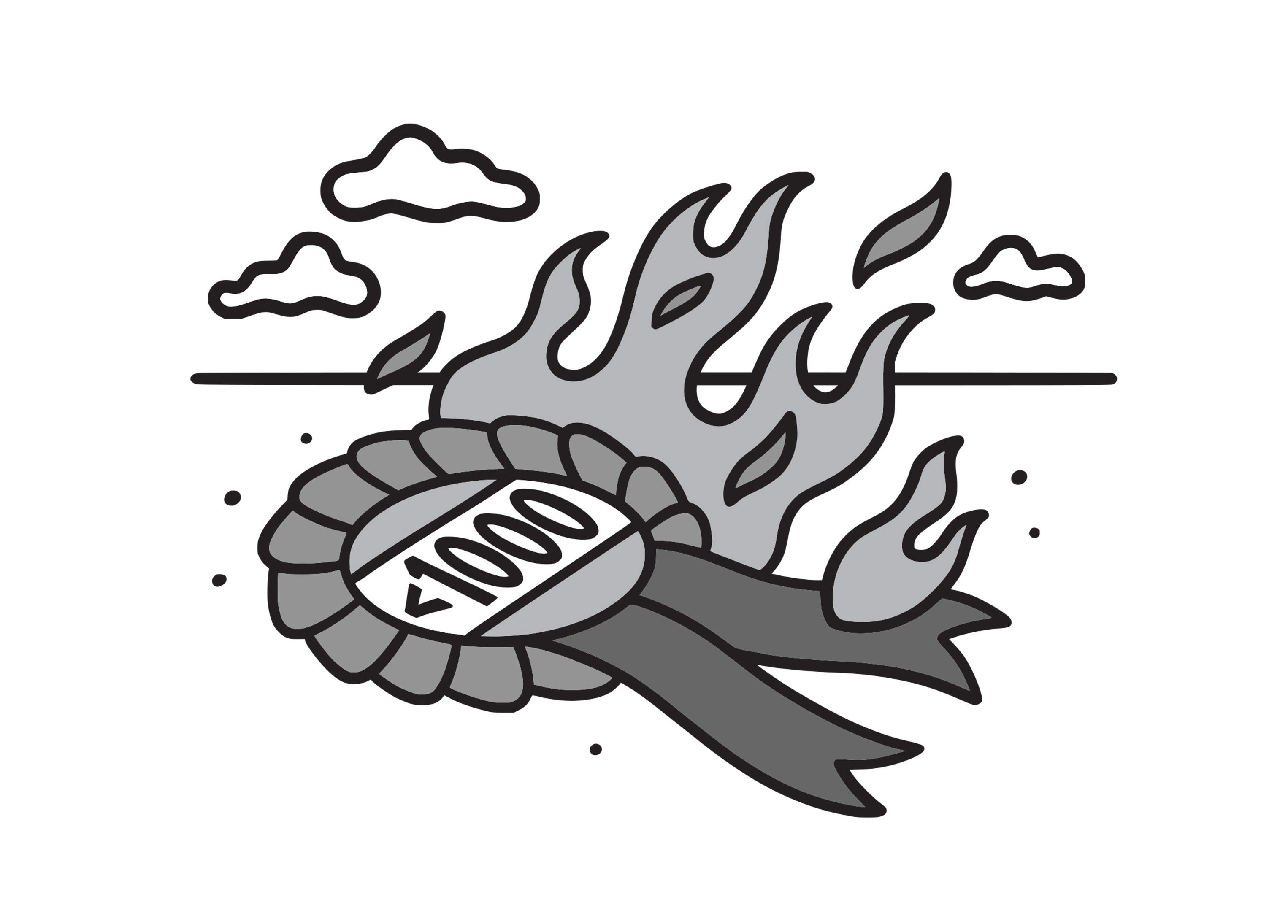The <1000 Club: some streams mean more
Thinking through our use of Spotify beyond its casual listening convenience

In this issue’s conversation with Danny L Harle, we spoke about the power of the internet to completely dislocate you from a living culture that you’re experiencing from afar. You might stumble upon a song that’s come from a small music community that took years to cultivate. This song is soaked in history and meaningful references, and you’ve absolutely no context for what you’re listening to. That’s always been a factor with an art form as all-consuming and fast moving as popular music, but the instantaneous nature of the internet intensifies it.
As a sheltered kid in the Highlands, I remember feeling an intense affinity for house tracks I’d find on Soundcloud circa 2011. I’d never been to a club. I didn’t have any idea how mixing worked. That dislocation from the culture was sort of exciting, then, but after years of nerdy, obsessive listening and time slowly grasping the history, while finding essential albums like DJ Sprinkles’ Midtown 120 Blues, it became clear that this music was formed out of living, breathing, often heavily exploited communities.
That exploitation by corporate interests hits independent electronic music from all angles, including in the form of streaming revenue. It’s why the Berlin-based electronic musician Skee Mask decided not to drop his fantastic new record, Pool, on Spotify or Apple Music. A new piece by Ted Hastings in Clash explored the current streaming situation for electronic music, reaching a particularly brutal conclusion:
“It’s hard to decipher who this benefits besides the casual listener who wants to listen to a ‘chill’ sequence while they answer their morning emails, and the top tier of high-earning artists who don’t really need any more money. Sure, your music might get added to a playlist, and it will get streamed a whole bunch of times, but if the listener isn’t actually paying attention to what’s playing, does it even really matter?”
On the other side of the world, underground club producers in New York are facing their own battle with streaming, and it makes the dislocating nature of a ‘vibe’ playlist even more clear.
The act I’m recommending this month is El Blanco Niño, aka Christian Vargas, a brilliant artist at the heart of New York’s underground club scene. His discography is made up of giddy club edits, restless house tracks and loosies dropped on Bandcamp straight from the hard drive. Some of the most exciting and daring of these are uploaded under a different spelling of the word ‘freebies’, like a draft edit you make to avoid duplicating a title.
This unfiltered bootleg approach is what the culture is built on, with unofficial edits being traded around and riffed on for the fun of it. Like AceMoMa, Kush Jones and DJ Swisha (who he has collaborated with on ‘Liquid Trak’), he works at a breakneck pace. You get the sense that there could be dozens of tracks floating about on the internet that we don’t know about.
Vargas is a dextrous producer, able to move between high energy juke and footwork to squelchy acid lines and reggaeton, often within a single track. When a wealth of tracks from artists like him started being made available during those first few Bandcamp Fridays in the early days of the pandemic, I got that feeling I did when I stumbled onto Soundcloud as a kid.
But rather than being disconnected, Bandcamp as a platform offered real connectivity – a chance to give back to these creators, and to find the connections between the artists thanks to the work of the site’s excellent editorial theme, who have championed acts from the scene. Labels like Haus of Altr have given back to their communities as a result, donating their increased revenue to charities like For The Gworls, Afrotectopia, & Afrorack.
As well as supporting him on Bandcamp, I’ve saved a lot of Vargas’ material on Spotify to share with friends and to take on the go. I keep coming back to the 33 EP, especially, which might be the most fluid and impactful statement he’s made so far, combining his workmanlike approach to club music with melancholic, wandering melodies.
I worry that the living nature of that music is going to get lost in the inattentive listening environment that Spotify encourages. The lack of streams in no way lines up with the beating heart of the music; what’s more, acts that Vargas has worked closely with have been upfront about the tiny revenue they see from streams, and the impossibility of uploading material that’s so filled with samples.
Ted Hastings ends his Clash column by asking if we can normalise doing both: supporting with our wallets and enjoying the convenience of streaming. All I know is that not all streams are worth the same. When a play could open a portal to a world you might not have even known was there, it’s easy to wish that all streaming platforms encouraged us to recognise the living cultures behind the endless playlists.